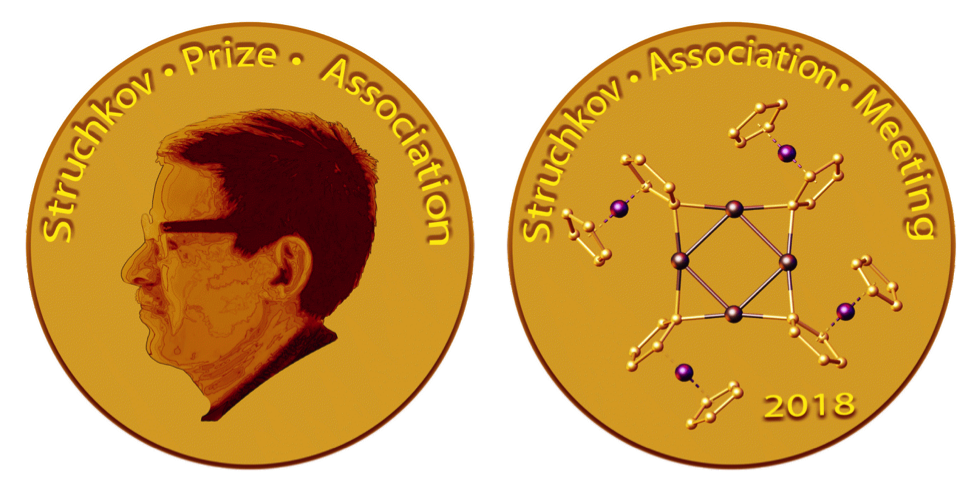Competition of Young Scientists for the Struchkov Prize Summed up the Results
I-Winners • First prize:
- Mikhail A. Kinzhalov - Ph.D. of Chemical Sciences, Associate Professor
Saint Petersburg State University,
Institute of chemistry, Department of physical organic chemistry
‘Structure-properties relationship in acyclic diaminocarbene complexes of late transition metals’
- Kirill V. Kovalev - master's degree
Moscow Institute Of Physics And Technology,
Laboratory for advanced research of membrane proteins
‘Obtaining high-resolution spatial structures of membrane proteins-optogenetics tools’
II-prize-Winners • honorable mention:
- Anna A. Sinel'shchikova – Ph.D. of Chemical Science, Senior Researcher
Frumkin Institute of Physical chemistry and Electrochemistry
‘Supramolecular ensembles based on porphyrin macrocycles’
- Ilya Yakushev - candidate of chemical Sciences, research associate
Kurnakov Institute of General and Inorganic Chemistry (IONKh RAS)
‘New heterometallic carboxylate complexes of platinum and palladium: structure study using synchrotron radiation and catalytic properties’
Reference:
The Struchkov Prize is annually awarded to young scientists for the best research work in the fields of chemistry, crystal chemistry, or material science. Since 2000, the prize fund of the competition for young scientists was formed annually from the funds of the Struchkov Prize Association, which unites students and former colleagues of Yuri T. Struchkov, working and living abroad. Since 2013, the award Fund has increased due to voluntary donations from scientists working in Russia.

About 150 leading Russian and foreign scientists met at the 7th All-Russian Conference "Physics of Aqueous Solutions" at the Russian Academy of Sciences.